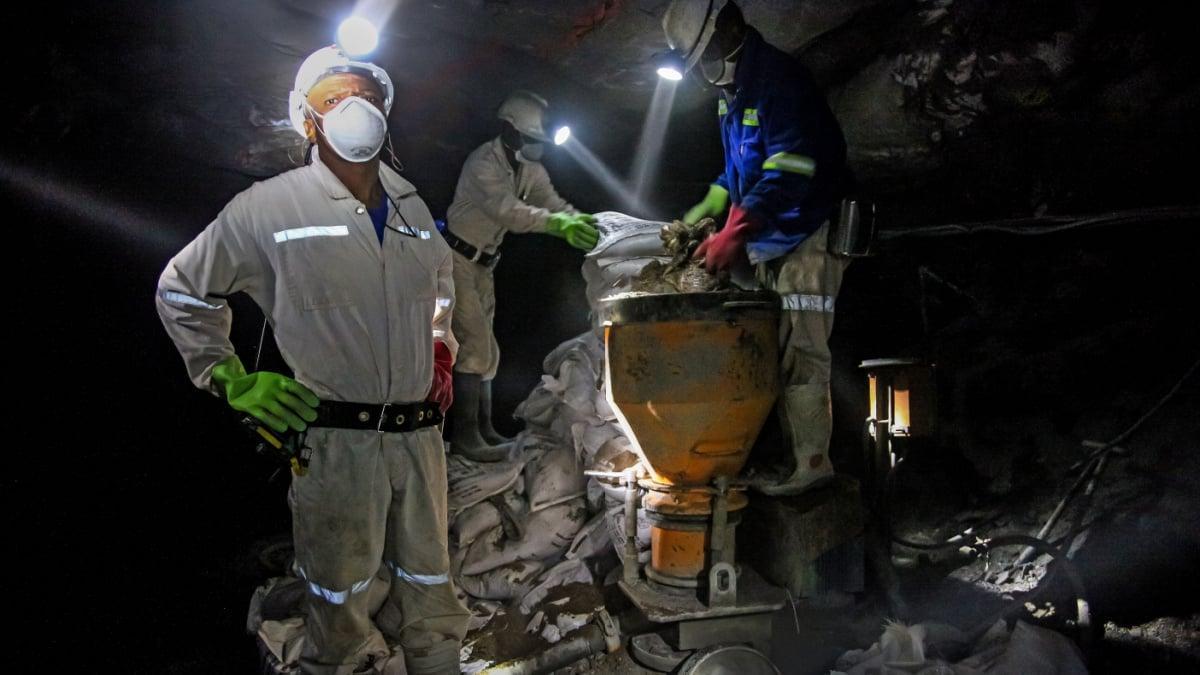Africa-Press – South-Africa. South Africa’s mining industry is a shadow of its former self, with decades of policy uncertainty, difficult labour relations, and increasingly onerous transformation regulations handicapping the sector.
These factors have played out over the past thirty years despite the efforts of the industry to encourage changes from the government.
The result of this is that South Africa is now one of the worst jurisdictions to operate a mine in around the world, with no new exploration for 20 years and flat output.
This has ensured the country has missed out on hundreds of billions in potential export earnings and hundreds of thousands of jobs.
Thousands of more jobs and billions of rands are on the line as the government considers a fresh tax on chrome exports from South Africa, supposedly in an effort to ensure the material is processed here.
Mining analyst at Modern Corporate Solutions, Peter Major, said there are major problems with this proposal, with it threatening to cost South Africa dearly in the coming years.
Major explained to BizNews that the main reasons why South Africa’s mining industry is not globally competitive and very little processing occurs here are due to government failures and not big business searching for profits.
South Africa’s mining legislation, once globally competitive, is now increasingly onerous and has plagued the industry with uncertainty, with many changes proposed and few implemented.
This has been coupled with regular threats of nationalisation and stringent transformation regulations under the guise of Black Economic Empowerment (BEE).
These factors, alongside rising electricity prices and a deteriorating logistics network, have made it extremely difficult to operate mines in South Africa.
As a result, over 6,000 mines are abandoned, representing billions of rands and thousands of jobs lost to government failures.
“We have seen so much bad legislation in South Africa, particularly on mining, because there is never an adult in the room when these policies are formulated,” Major said.
“The people never think more than one step ahead, about the immediate reactions and longer-term consequences.”
This has resulted in exploration for new mineral deposits plummeting in South Africa, with little to no new exploration being conducted in the past 20 years.
“Our exploration spending has probably been on a 45-degree downward slope continuously since the early 1990s. There is nothing we see in the legislation to change that,” Major said.
“It is sad and scary that in 2004, when we came out of a long slump in metal prices and entered a supercycle, we are still in, and it has not stopped the downward slope of exploration spend in South Africa.”
“That means it is irrelevant to metal prices. We can no longer blame the failure to build new mines, modernise mines, and explore due to low prices. What is it? It can only be policy.”
Major said that things have gotten so bad that miners are not even exploring the areas surrounding their existing mine.
“Mining companies are saying there is no commercial reason for us to sink a shaft here. The legislation has gone wrong. There is no way some would sink a shaft even if they found new mineral deposits,” he said.
The graph below, courtesy of Symmetry’s Izak Odendaal, shows South Africa’s mining output over the past twenty years, with it declining steadily.
South Africa making the same mistakes
South Africa is following the same path as other African countries, which had flourishing mining sectors that are now largely moribund.
The collapse in these mining powerhouses was also due to poor policy, uncertain implementation, calls for nationalisation, and demands to have specific shareholders through the empowerment policy.
“We were a leviathan in the 1980s. Nobody could beat us. Anglo American was the largest investor in the United States. The Americans were terrified of us,” Major said.
“You are now seeing what happened in Zambia and in Zimbabwe, now in South Africa. It has not turned around. It is still going down.”
Major explained previously that things began to change in South Africa in the 1990s, with the ANC government making significant changes to mining legislation and imposing transformation policies on the sector.
These policies, often well-intentioned, have had disastrous side effects and consequences, with the government failing to coure correct.
“When the new administration took over, it decided to try to totally revamp mining law in South Africa and copy what other African nations did,” he said.
This consisted of calls for nationalisation of South Africa’s mining industry and intense transformation regulation through empowerment policies.
What exacerbated the difficulties created by this was the immense uncertainty it caused, with constant changes in legislation and regulations scaring off new investment.
It takes around 17 years to fully develop a mine from exploration to full capacity. This requires immense certainty in the future of the jurisdiction you are operating in and confidence that you will be rewarded for the extreme risk the company is taking.
In South Africa, this certainty has not existed, nor has the potential for sufficient reward, with specific shareholders required to gain licences and threats of state ownership.
“You can imagine. You put billions into projects for decades and are now threatened with state ownership. New investment has just stopped. Exploration and expansion just stopped,” Major said.
“They were also changing legislation non-stop. You first had to have a BEE partner that owned 25% and that quickly changed to 30%. And then, they said 70% of the money you spend had to go to BEE suppliers.”
“As if nationalising property was not enough, they put on all these horrendous conditions that drove capital away.”
Anglo American CEO Duncan Wanblad told the Joburg Mining Indaba that South Africa’s mining potential has been wasted over the past 20 years due to unsupportive policy.
“The data will show you that it takes about 17 years from the time that you find the deposit until the time that you get it permitted and ramped up into full production,” Wanblad said. “It’s a generation of mines that have been foregone.”
Major compared South Africa’s fortunes to those of the United States, which is experiencing a mining boom under President Trump.
“They were clear that everything has changed in just the past six months because of Donald Trump. Mr Trump is known for ‘Drill, baby, drill’ and ‘Dig, baby, dig’.”
“Mining companies in the United States are getting permits in weeks now, rather than years. We are seeing massive exploration projects across North America.”
“Instead of changing South Africa’s mining charter to encourage investment, it has been more of the same and doubling down,” Major said.
For More News And Analysis About South-Africa Follow Africa-Press






